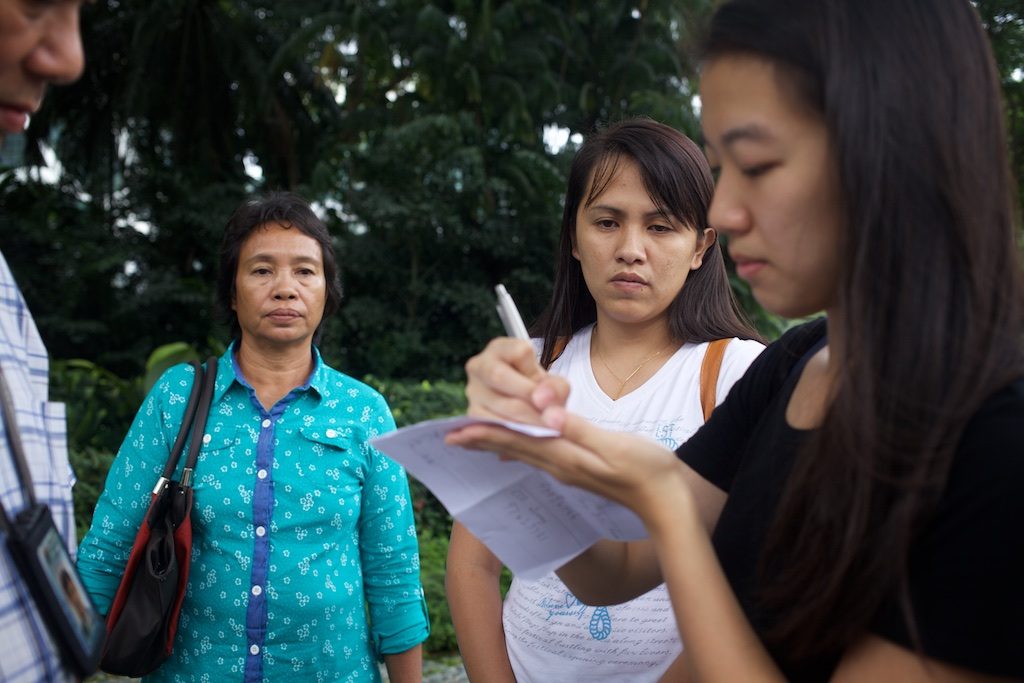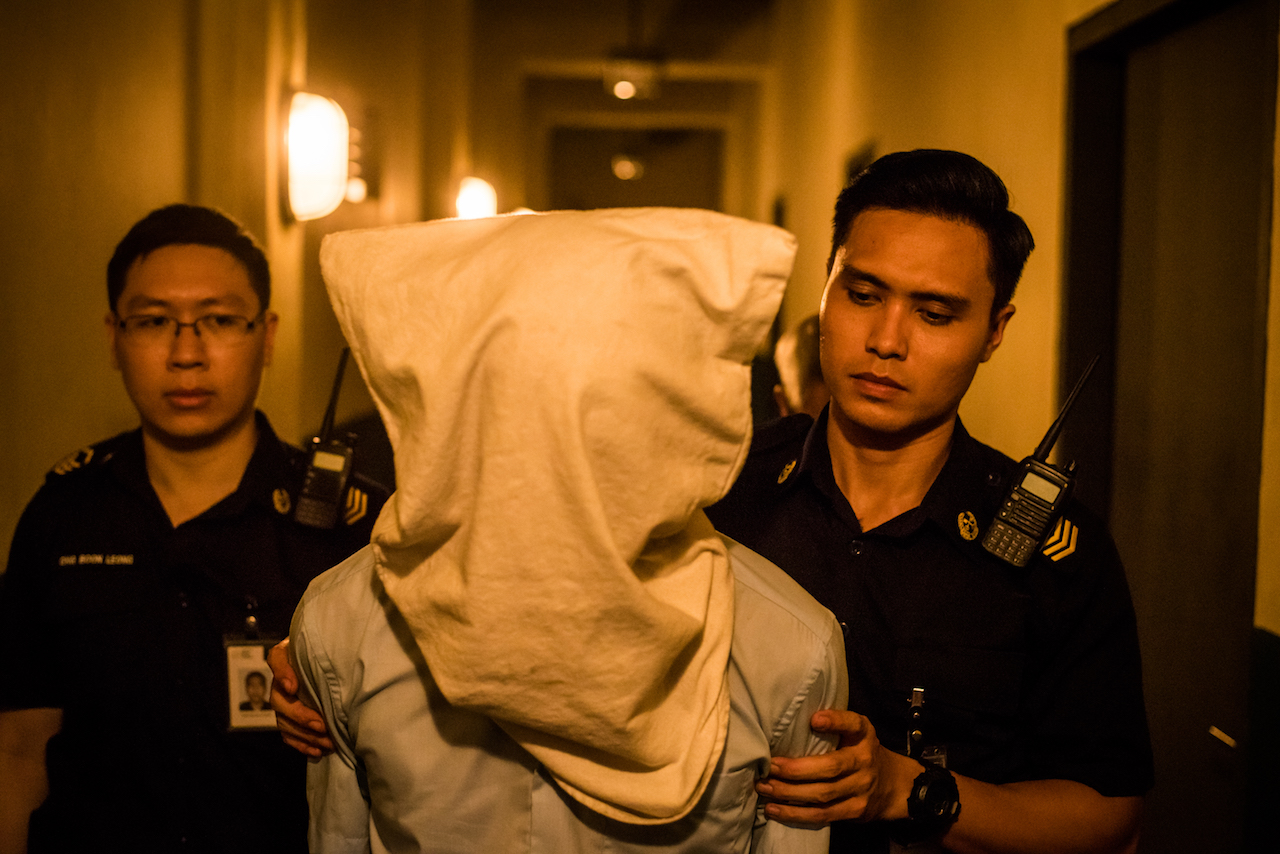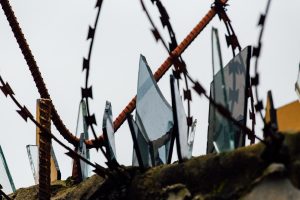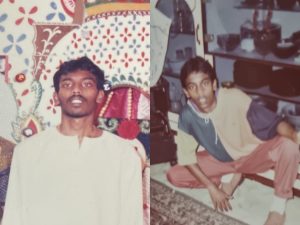The road was quiet, with only the odd car or bus passing by. The sun was rising, the sky lighting up slowly behind the drab, grey walls of Changi Prison Complex. We sat three in a row, too weary for conversation.
Somewhere behind those imposing walls across the street, a man had just been hanged. All this while, his relatives stood outside the prison, clutching the fence, crying softly as the minutes ticked closer and closer to six: the time executions are usually carried out on Fridays.
While it’s been over six years since I first got involved in the campaign to abolish the death penalty in Singapore, it’s never stopped feeling surreal.
From the trials, with the legal jargon and the huge stacks of references and submissions, to the clemency appeals handed in at the side gate of the Istana, and even the dreaded quiet nights waiting for the end at dawn, capital punishment involves a deliberate, purposeful process to kill a person.
It’s hard to explain my personal reaction to executions. One common assumption is that I’m grieving the death of criminals, that I believe these criminals to be saints. But the reality is a little different.
The fact is that I don’t know these people. I see them in courtrooms, or see photos of them from happier times. Once in a while, we receive messages from them via visiting family members, usually just thanking us for our help. I read about their cases in court documents, affidavits and legal submissions.
Some cases are more egregious than others. While one can argue that young, small-time drug mules deserve rehabilitation and mercy rather than a one-way trip to the execution chamber, murders are harder to defend because of the violence involved. It’s highly possible that some of the inmates whose cases I’ve come across aren’t nice people at all. There’s no way for me to know.
The people I do know are their families. The mothers, siblings and wives who have committed no crime, but have to struggle with all the trauma, stress and stigma. These are the people who love these inmates even when no one else will, even when the state has ruled that they no longer deserve to be alive. They are the ones who demonstrate, over and over again, that an individual is always more than the worst thing he or she has ever done.
Working with them has shown me that life will never be as neat as we want it to be. That there aren’t clear “good guys” or “bad guys,” and it should never be that easy for us to decide between life and death.
It is for these families who have kept the faith and hoped beyond all hope that I grieve when an execution takes place.
An inmate’s journey ends when the execution is carried out, but the family will continue to live with the sorrow. When Kho Jabing was hanged on 20 May 2016, I sobbed for his mother and his sister – people who had, over the months we worked together, become my friends. I cried for Jumai, who had been so brave and so strong, and how she would have to share her birthday with the memory of rushing from the courtroom to the prison to say her final farewell to her brother.

I remember sitting in the void deck of an HDB estate, fiddling with the straw of my finished drink at the funeral of a death row inmate. A fellow volunteer for We Believe in Second Chances – an abolitionist group I co-founded – sat with me. We chatted about nothing in particular, then lapsed into silence. Then she asked, “Do you ever ask yourself, ‘What am I doing here?’”
My answer was that I never thought about it. It’d always been clear to me that I was there to support the inmate’s loved ones as much as I could, and to bear witness to something that had been done by the state on behalf of all its citizens. What I always ask myself, though, is: how did we get here?
I always believed that most people, to the best of their ability, would intervene if they saw another human being dying or in danger. I always imagined that people will seek, as much as possible, to stop murders, no matter who the individual is. At the very least, they wouldn’t just turn away.
Yet when it comes to the death penalty, we’ve all collectively done so, and that’s something I’ve found difficult to accept and understand.
I can already hear the rebuttals: What about the victims? Why don’t you care about them? Aren’t there better things to do than helping criminals? They’ve committed the crime and so they should pay the price.
I’ve seen these comments so many times. I’ve become far too familiar with them, with the assumptions that they make and the anger they contain. There are so many things I used to want to tell these commenters: that I do care about the victims of crime, that I do wish that more could be done to support them. I just don’t believe the death penalty is the way to do it.
It won’t bring back the one they’ve lost, nor provide any real support to get over the tragedy they’ve had to endure. All the death penalty does is perpetuate more violence and create more victims.
These are the things I used to want to say. I tried a few times, too. These days, I don’t respond as much as I used to because I’ve learnt that sometimes people aren’t all that interested in listening or engaging at that particular moment. All I can do is be clear about my position, and hope they’ll consider it when they’re ready.
What horrifies me the most is the way killing is turned into an administrative process; how easily we dismiss other people, how readily we play God.
Sometimes I read about a crime and feel angry, recognising my own human hunger for revenge that we so often mistake for “justice”. In these moments, I feel that the law should be there to protect me from my worst self. Wanting the death penalty should never be the same as being able to impose it.
People often think of capital punishment and executions as sensational, satisfyingly retributive, or terrifyingly cruel. But what horrifies me the most is the way it turns killing into an administrative process, built on paperwork, procedures and protocols. It becomes tedious, almost boring, and that’s the most chilling part. It makes me realise how easily we dismiss other people, how readily we play God.
It was this quiet horror that prompted my Facebook post on the day Kho Jabing was suddenly hanged – the first time in Singapore’s independent history, as far as any of us knew, the authorities had broken with protocol and hanged someone in the middle of the afternoon. All I wanted was for people to acknowledge that a human life had been lost. Whether they felt it was justified or not was a separate issue.
I knew there would be pro-death penalty people who would want to argue with me, but I didn’t expect the volume and vehemence of the response. Hundreds of comments poured in, most of them angry. It was enough to catch the attention of the Malaysian media.
I was accused of wanting to destroy my country, of disrespecting victims, of martyring killers. I later found comments about me on various forum sites, suggesting that I (or members of my family) be assaulted, raped or murdered.
Considering the number of commenters insisting that the death penalty existed to keep Singapore safe, it was pretty ironic that this period of flaming was the first time I had ever felt unsafe in my own country. I knew it was unlikely, but wondered from time to time if someone would recognise me on the street and decide to abuse me – verbally or physically – right then and there. It’s been over a year now, and I’m still not sorry I wrote that post.
And so that morning, the three of us – all volunteers from We Believe in Second Chances – sat in a row at the bus stop, too weary for conversation. Somewhere behind the imposing walls of Changi Prison across the street, a man had just been hanged. We’d known from the moment we heard his case that we would probably lose.
When you’re an anti-death penalty activist in Singapore, you approach every case knowing that the chances of failure are about 100%. It’s an eventuality you have to steel yourself for, and you’re responsible for making sure the families you help are aware of it. All you can do is try your best to fight the odds, to buy time; to buy days, weeks, months. Sometimes you succeed, sometimes you don’t. But you have to keep trying, and let the families know they’re not alone.
It is, after all, as Jabing’s sister Jumai said: “”Even if we fail in the end I will know we tried everything.” And sometimes that is the only thing you can hold on to.






